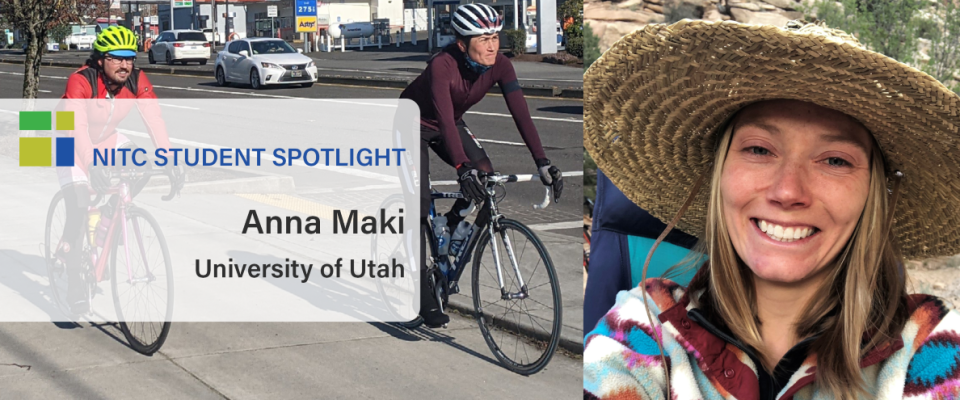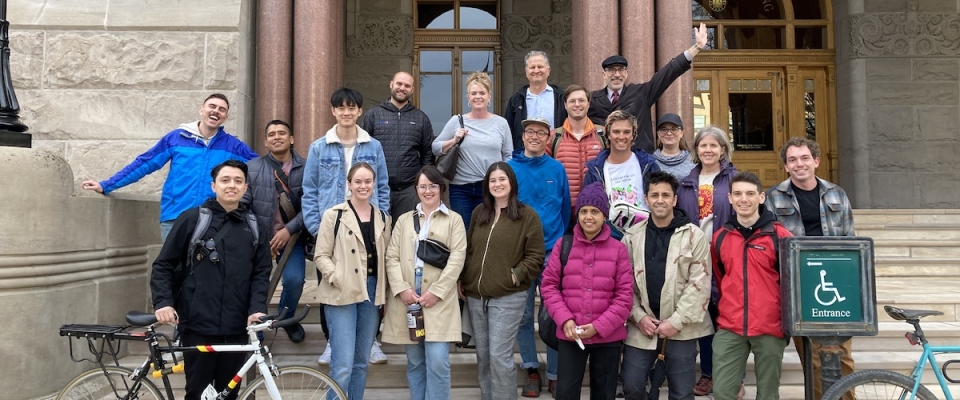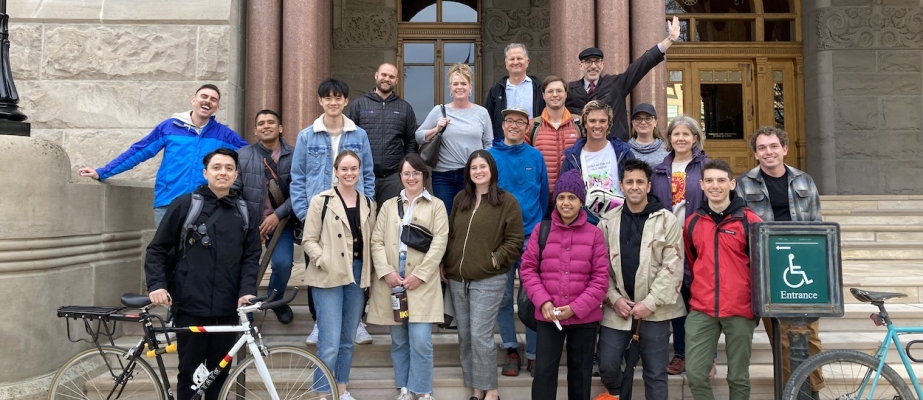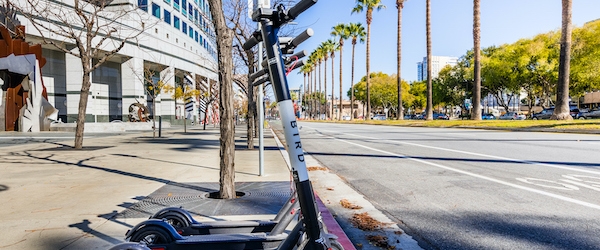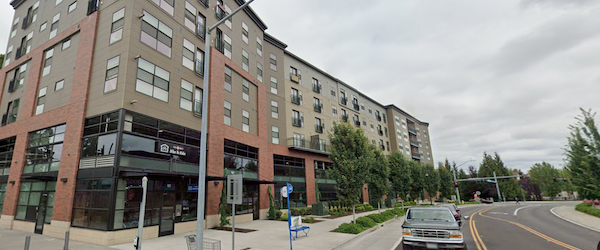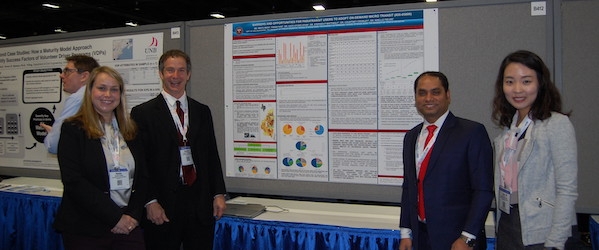Anna Maki is a second-year masters student in the City and Metropolitan Planning department at the University of Utah. She currently works as a graduate research assistant for the university, and as a transit community outreach and marketing intern at Park City Municipal Corporation. Anna is serving as president of Point B, UU's student transportation group, for the 2022/23 academic year, and has also worked as an active transportation intern for UU's sustainability office. She earned her BS in environmental studies from Utah State.
Tell us about yourself?
I moved from Boise, Idaho to Utah in 2013 and have lived, and adventured, in Salt Lake City for the past five years. I’m currently in my second year of the Metropolitan Planning (MCMP) program and am working as a research assistant creating a walkability audit with an instructional module to be taught in the U’s classrooms. I’ll also be collaborating with the Wasatch Front Regional Council on conducting a walkability and urban design audit in South Salt Lake.
What (or who) has influenced your career path in transportation?
I grew up with great access to the outdoors, which generated an interest in sustainability, accessibility, and bicycling. This in turn led me to an active transportation internship with the University of Utah’...
Read more
